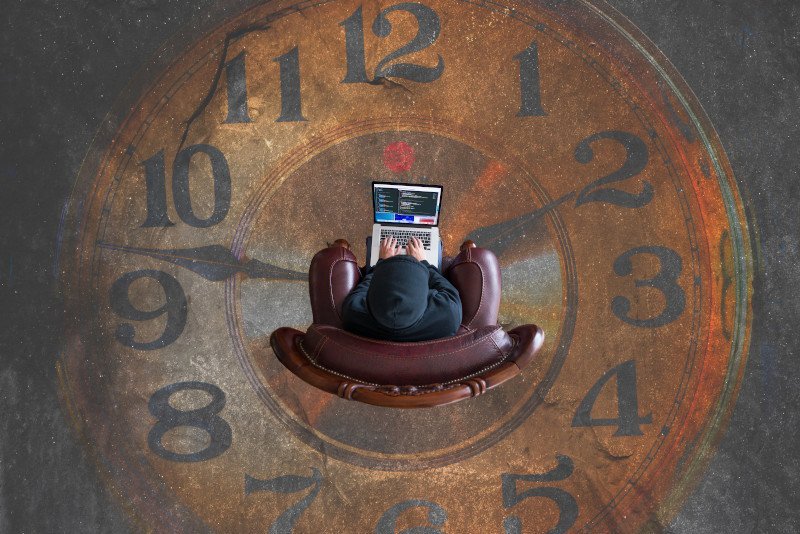Reduce news consumption for better productivity, health, and happiness. Are you serious?
What flies in the face of popular opinion does make sense. But it takes conscious will, if not sacrifice, to experience the benefits of not being plugged into news and social media around the clock.
The common understanding of the information economy appears to be incomplete.
Yes, it is an unprecedented blessing that we have sheer limitless information available at our fingertips with ease. Yet, subjecting ourselves to a constant stream of unimportant, irrelevant, and misleading information has a severe downside. Excessive media consumption negatively affects our physical and emotional well-being.
The Information Economy Is a Blessing And a Curse
Here is how the story goes that the news has become bad for us. And how we can develop a healthy attitude towards our media consumption.
There is one caveat though, news and the media are a supersized elephant in the room of intellectual debate. Let’s try not to get too philosophical on the one hand and also avoid the ‘all-media-is-bad-and-manipulative-rant’ on the other.
Instead, let’s focus on three key questions and look at how to maneuver this phenomenon in the game of life.
First, how to stay informed and why mainstream news may not be the best choice for doing so?
Second, why is it that excessive news and media consumption harmful for us?
And third, how to become resistant to the harmful effects of news and media and still find the relevant information for us.
How do We Stay Informed and can Have an Opinion about Current Affairs?

In my early high school days, our history teacher gave us the task of reading the local newspaper. Each week, we had to select three items that we believed to be relevant to the world back then. We were in the times way before the Internet would become the ubiquitous purveyor of news. It was, oh my, back in the eighties. Students would pick the oil crisis, a movie star becoming president of the United States, and the Rubik’s Cube debut.
The Mainstream Media Creates Consensus Reality
Back then, we all thought a newspaper tells us what is going on in the world. Our history teacher’s reasoning was for us to become aware of what is happening in our society. And then to be able to develop an informed opinion. How to reduce news consumption would become a topic much, much later. This news reading exercise was about making young adolescents part of the community.
Years later, I would read a book at university that has had a lasting effect on my thinking until this day – ‘The Reality of the Mass Media‘ by Niklas Luhman. (1995)’
Television channels had multiplied by then. Technological and cultural globalization gained an ever-widening discussion audience. And some realized that the Internet would become the latest game-changer in human history.
The Media is A Business System with its Internal Laws
Extending his theory of social systems unto the mass media, Luhman contends that the mass media operate in a self-referential order of their internal reality.
According to Luhmann, it is not objectivity, knowledge, or truthfulness that drives the selection of topics in the media. But it is the media’s code to select what is news and what isn’t and then create a narrative that references its previous stories.
Now, Luhman’s conception of the mass media is a far cry from the assumed reality of current affairs that my high school history teacher took as given.
Assuming that we consume news to know what is going on in the world to navigate our lives better, Luhman’s understanding renders the news useless for this purpose.
The news is still economically relevant and serves as a mediator of what the many perceive as reality. But as a guiding compass for personal action, it leads us astray. The news will even alienate us from ourselves.
And much worse, even, media consumption is outright wrong for us.
Why is it that excessive news and media consumption harmful for us?

I first came across the analogy that news is to the mind what sugar is to the body in Rolf Debelli’s brilliant ‘The Art of Thinking Clearly (2013).’ And it makes perfect sense. Dobelli calls the news a ‘toxic form of knowledge’ which has comparable qualities to sugar: ‘appetizing, easy to digest – and highly destructive in the long run.’
You might have heard the adage ‘What’s the news? – Fear, hatred, tits, and the weather’. Often intended as a joke, this saying oversimplifies a more profound truth of the news’ business model: Scandalous, polarizing, alarming, and shocking headlines stimulate the primal senses of our limbic system.
The News Capitalize on Our Primal Instincts
Like our hunter-gatherer ancestors, we live in a world full of risks and threats. But our predecessors’ reality of wild nature and sabertooth tigers was what a distorted mental creation by the media is to us today.
While our ancestors experienced sudden and temporary rushes of stress that ensured their survival, we live with constant low-level fear leading to depression, anxiety, and various physical ailments.
Most News is Irrelevant and a Waste of Time
Honestly, scrutinizing our media consumption leads to a redeeming insight: The news, by and large, is irrelevant. How many out of the thousands of news items you have gleaned through in the last couple of years have substantially and positively influenced an essential decision in your life?
Right, none, or perhaps a couple were of significance. And if you followed so far, there is one more conclusion that easily comes next: News is a waste of time.
How much time are you spending browsing down and up again through self-loading online news lists? Or let’s think about it more abstractly: Imagine an atrocious act of terror that we have seen way too many in recent years. The harm of the horror multiplies by live news coverage days after the event that millions of people follow in fear glued to their devices. Fathom all that lost time!
How to Take Advantage of the Information Revolution and Find the Information You Seek

The business model of the mainstream media depends on two believes:
Not the Media, But You Get to Decide What Your Reality Is
First is the belief that the news is a valid representation of reality. Luhman’s system theory, among others, can heal you from that.
And so can statistics and available data from scientific organizations around the world. Take, for example, the Yemeni Civil War that’s been raging since 2015 and the refugee plight of the stateless Rohingya people in South-East Asia. Their fate does not hold enough value and relevance to make it into mainstream media’s headlines. Yet by numbers of casualties and the extent of human misery, these conflicts are much more grave than others that dominate mainstream perception.
Once it becomes clear that the mainstream media does not offer a useful representation of reality, this insight helps reduce news consumption naturally.
Second, the news drives us today as the grizzly bear did our ancestors in the past. Turn it around. It’s hard, as most of us are addicted to the news and sincerely feel that the media stream is vital to our lives. Those habituated neuronal pathways are deeply ingrained, and you will experience almost physical pain when changing them. But here are the stakes: a self-directed life.
Know Where You are Going and Make the Media Work for You
Make your media consumption dependent on your personal goals. Rather than just indiscriminately surfing or watching the news, search for what interests you.
Alerts from system relevant organizations or embassies are sufficient to keep you abreast of what is vital to your life. And most of us are surrounded by people that are plugged continuously into the news. Listening to their verbal digestion of current events is usually more than enough to stay up to date.
When you reduce news consumption, you become more relaxed, clearer in your thoughts, and naturally creative.
We live in a time when the constant stream of news becomes so challenging that most continuously wonder how they can keep coping. People run faster and faster. While the way out is slowing down and taking the reflection time to realize the fantastic technological leap our species is going through.
We can only unwind by knowing what we are doing. Equally, we can only use the full potential and magic of the information revolution when we know our purpose.
Set alerts and feeds to keep on top of the subjects that are important for your goals. Read in-depth research and literature. Books remain the best way to learn about the world. In times of short-lived mass media, the valuable information in books quite literally flies under the radar.
When we allow news to drive us, these are incredibly stressful times.
Instead, reduce news consumption and selectively use media for your benefit. When you intrinsically drive what information you consume, then these may well be the best times ever to be alive.





